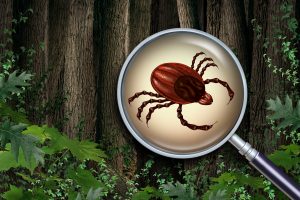Perhaps you picked up this magazine and thought there are no medical benefits of cannabis. It is just a ruse to smoke and get high. Certainly, you can smoke cannabis to get high, but there are medical benefits from this wonder plant. Over 120 cannabinoids (Think keys that fit into your bodies cell receptors) have been discovered to date, and less than a dozen have been researched, developed into drugs, and are currently in pharmaceutical pipelines transitioning through clinical testing. Cannabis for wellness is definitely a thing. Let’s take a closer look.
Cannabinoids such as THC, CBD, CBG, and others have been found to reduce pain naturally in the body, kill tumor cells according to the National Cancer Institute, stop the progression of Alzheimer’s and dementia, prevent tremors and seizures, all ailments that afflict us in middle-age going forward into our senior years.
Did you know that small micro-doses of cannabis in the range of 3 to 5mgs can stave off these ailments and contribute to general wellness? Doses under 5mgs will not get you high, nor cause you to fall into the proverbial prohibition themed state of reefer madness. Old stigmas die hard.
Amendment Two, allowing medical marijuana, passed in 2016 by a majority, yet cannabis remains misunderstood. The general population, without the benefit of media education, wonder why cannabis is medical, and what are the various methods of delivering cannabinoids to the body? The cannabinoids, which act as keys to receptors in the body’s cells, can be used in very low dosage amounts.
Later we will find that these low dosages of THC and CBD, cannabinoids found in cannabis, create homeostasis in the brain, are neuroprotective, prevent inflammation, and work to reduce harmful chemicals from being released after a traumatic brain injury.
First a little history...
The synthetic versions of THC have been around since 1985, approved by the FDA for treating wasting syndrome and increasing appetite. Today, we have three synthetic pharmaceutical versions of THC.
Why do we need organic when we have synthetic?
Synthetic THC is very expensive, and lacks the whole-plant cannabinoids, meaning synthetic versions are ultrapure single cannabinoid medicines. Plant based medicine has all the natural cannabinoids, terpenes (smell), flavonoids (taste), and work in the form of an entourage effect on the body.
Natural plant based flowering products have been the backbone of a traditional system of healing throughout the world, and have been an integral part of history. According to Fabricant and Farnsworth (2001) 80% of 122 plant derived drugs were related to their original ethno pharmacological purposes. For example, the Pacific Yew is used to treat lung, ovarian, and breast cancer, and today is found in the drug Paclitaxel. Milk Thistle seeds are used to treat liver disease, and is found in the pharmaceutical drug Silymarin. Drugs have been derived from plants for thousands of years. Even Greek surgeons who traveled with the Roman Army used cannabis as a means of medical treatment.
Does cannabis really work for pain? And is it safe?
There will be an estimated 130,237 patients newly diagnosed with ALS, cancer, epilepsy, and HIV in 2017 in Florida. For pain management, patients today have a choice of either NSAIDs or opiates, both of which cause long term damage to internal organs, and possible death from overdose. Opioid receptors are distributed widely in the brain, and when the opioids attach to them, it slows down breathing and can result in death. There have been zero recorded overdose deaths from the use of cannabis. Opiates? Over 30,000 Americans died of an opiate overdose in 2015.
Cannabis is an in between drug which can be used for mild and moderate pain and does not have the side effects associated with NSAIDs or opiates. Cannabis is safe. Why? There is no possibility of an overdose, as there are no cannabis receptors in the brain stem, which control respiration and heartbeat.
Can cannabis prevent Alzheimer’s?
Studies have been conducted and detailed in the Journal of Alzheimer’s disease documenting how the cannabis cannabinoids THC and CBD prevent the toxic buildup of AB peptide, which produces plaque buildup in the brain. The journal Molecular Medicine goes on to state test results confirm the role of the body’s receptor system in reducing plaque buildup in the brain.
The key to cannabis use is to start in mid-life, with small dosages, to prevent the buildup of plaque. Waiting until you have the onset of dementia is too late. The damage has been done.
Last year the Salk Institute in La Jolla, California found that THC may reduce beta amyloid in the brain, which causes neurodegenerative disease. “THC stops inflammatory response from the nerve cells and allows nerve cells to survive.” The study concluded with the statement “adding medical cannabis oil to Alzheimer’s patient’s pharmacotherapy is a safe and promising treatment option.”
Furthermore, Nature International Weekly Journal of Science reports that “1mg of THC per day resulted in significant inhibition of chronic inflammatory disease, which is the primary cause of heart disease and stroke in the body.” One milligram of THC would produce no psychoactive effects in the body, yet yield significant health effects long term by reducing heart disease. THC and associated cannabinoids are valuable targets for treating atherosclerosis and cardio hypertrophy. Mixtures of cannabis cannabinoids enhance the secretion of the neurotransmitter dopamine, and protect neurons from the mitochondrial-induced free radical damage. Hence, the future of cannabis cannabinoid medications will be complex mixtures of cannabinoids and their entourage effect.
I heard cannabis kills cancer. Is that true?
The National Cancer Institute states cannabinoids may cause antitumor effects by various mechanisms, including induction of cell death, inhibition of cell growth, and inhibition of tumor angiogenesis invasion and metastasis. An in vitro study of the effect of the CBD cannabinoid on programmed cell death in breast cancer cell lines found that CBD induced programmed cell death in cancer cells, while leaving normal cells alone.
CBD has also been demonstrated to exert a chemo preventive effect in a mouse model of colon cancer. In in vitro experiments involving colorectal cancer cell lines, the investigators found that CBD protected DNA from oxidative damage, increased endocannabinoid levels, and reduced cell proliferation.
What about that Israeli study where cannabis works on bone breaks?
Tel Aviv University research finds the non-psychotropic compound in marijuana can help heal bone fissures. According to the research, the administration of the non-psychotropic component significantly helps heal bone fractures. The study, conducted on rats with mid-femoral fractures, found that CBD — even when isolated from tetrahydrocannabinol (THC), the major psychoactive component of cannabis — markedly enhanced the healing process of the femora after just eight weeks.
What do seniors break later in life? Hips, legs, and arms upon a fall. Cannabis can be part of the natural healing process for bone breaks. The cannabinoid CBD is not psychoactive, and heals bones.
The research was led jointly by Dr. Yankel Gabet of the Bone Research Laboratory at the Department of Anatomy and Anthropology at TAU’s Sackler Faculty of Medicine and the late Prof. Itai Bab of Hebrew University’s Bone Laboratory. “We found that CBD alone makes bones stronger during healing, enhancing the maturation of the collagenous matrix, which provides the basis for new mineralization of bone tissue,” said Dr. Gabet. “After being treated with CBD, the healed bone will be harder to break in the future.”
There are clinical trials with no fewer than 20 pharmaceutical firms conducting cannabis related clinical trials. Human studies are taking place in Europe and Israel using cannabis to reduce seizures, plaque buildup in the brain, improve cardiovascular health, and in targeting tumors as part of the cancer treatment program.
Moving forward Americans can expect to see cannabis as part of wellness programs and targeted therapy programs. Cannabis will be part of everyday wellness protection.
References:
Journal of Alzheimer’s Disease 2015; 43 (3) 977 – 91.
Nature Weekly Journal of Science 434 782-786 (7 April 2005).
Molecular Medicine 2013 Nov 8; 19: 357-64.
Psychopharmacology May 2006, Volume 185 Issue 4 pp 524-528.
Nature International Weekly Journal of Science 434 782-786 (7 April 2005).





